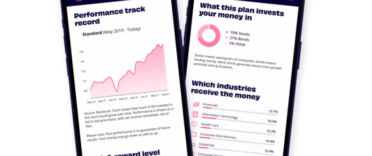Article UPDATED 17th Septemeber 2012
When saving for retirement the obvious thing to do is pay into a pension, however, there is another option which is paying into an ISA.
Here I look at the differences between the two methods and hopefully help you to decide which is best for you.
Taxation
ISA
Contributions into an ISA are made from money that has already been taxed, and any subsequent growth in your ISA will be free of capital gains tax (CGT).
In addition, there is no income tax to pay on any income generated, with the exception of with-holding tax on dividend income. Compare this to putting money into a savings account with your bank where the interest is liable for income tax.
In addition, investing directly in the stock market means CGT will be payable on any growth (above the annual tax-free allowance,currently £11,280) at the rate of 18% or 28%.
Should you die then your ISA portfolio would normally form part of your estate and be subject to inheritance tax at 40% unless your total estate and gifts fall within the Inheritance tax threshold (currently £325,000).
Pension
Tax relief on pensions is paid upfront. This means that for a basic rate tax payer for every £800 paid into a pension £1,000 is actually invested, with HIMRC rebating the original income tax paid. A higher rate taxpayer would get £1,000 invested into their pension plus a 20% tax rebate on top via their self assessment tax return, effectively reducing their actual pension payment to £600.
When you eventually take an income from your pension it will be subject to income tax, although you can take 25% of your pension pot as a tax-free lump sum. Much like ISAs, growth within the pension wrapper itself is free from CGT and Income tax.
However, should you die before taking retirement benefits and before age 75 it is possible to pass on the value of your pension fund without any tax charge. Once you start taking retirement benefits or are aged 75 or over then your pension fund would be subject to a tax charge of up to 55% upon your death.
Contributions
ISA - For the current tax year a saver can invest £11,280 into an ISA (£5,640 of this can be in a cash ISA).
Pension - Each year you can invest £3,600 into a pension or your total taxable income (up to a maximum of £50,000), whichever is the greater.
Accessibility
ISA - Money invested in an ISA can be withdrawn at any time unless you have invested for a set period to obtain a better interest rate.
Pension - You can take a cash lump sum of up to 25% of your pension fund and/or an income any time after your 55th birthday.
So which is best - a pension or an ISA?
- If you are employed and your employer contributes into your pension then by joining the scheme it's like having an extra 'free' salary being paid into your pension.
- If you became unemployed or are made redundant your ISA portfolio ISA will go against you in any means test.
- If you are currently a basic rate tax payer paying into an ISA now and you then transfer that money into a pension when you become a higher rate taxpayer you would maximise your tax relief.
- If you are paying the maximum into your pension and still want to save more, then an ISA would be an obvious tax-free environment to use.
- However, any investment in an ISA is easily accessible, so saving long-term would need strict discipline to stop you raiding the funds for that exotic holiday.
At the end of the day it comes down to personal preference once you've weighed up the pros and cons of each method of investing for your retirement.






that’s a fair assessment Damien. However, the case for the ISA option becomes a little stronger as someone gets close to retirement, say within 3/4 years. Money paid into a pension at that stage is likely to be subjected to the Lifestyling process of moving into less volatile assets, and therefore unlikely to grow much before taking benefits at retirement.. If put into the ISA it can be left invested until a later date, so can be more actively invested to produce an additional supplemental tax free income. This might be particularly relevant for those whose pension, including State pension benefits, makes them either a 40% tax payer, or maybe on the borderline. Increasing the pension by further investment might mean they move into 40% tax, the ISA choice produces tax free income